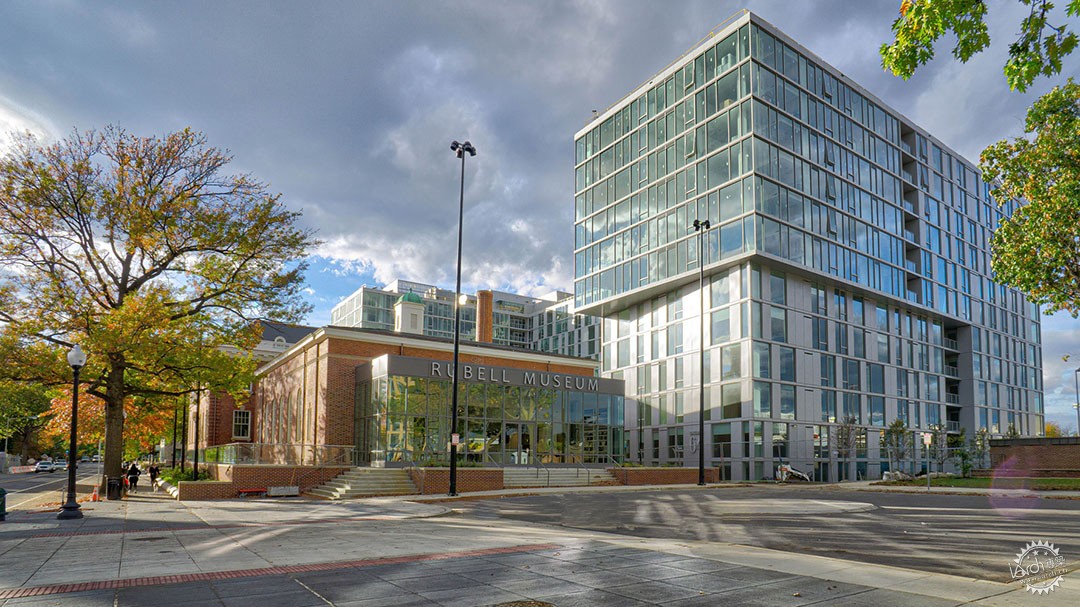
Image courtesy Beyer Blinder Belle
Beyer Blinder Belle设计完成了位于华盛顿特区的鲁贝尔博物馆(Rubell Museum)
Beyer Blinder Belle Completes Rubell Museum in Washington, D.C.
由专筑网江鹏,小R编译
10月29日,位于华盛顿特区西南街区的鲁贝尔博物馆向公众开放。这是十多年来未被充分利用的开发地块,该地块以前由Randall学校占用,由Beyer Blinder Belle(BBB)进行修复。鲁贝尔博物馆位于高速公路的一侧,高速公路穿过华盛顿特区西南部,远离国家广场上的Smithsonian博物馆。鲁贝尔博物馆提供了大量的当代艺术品,成为了城市的文化中心。该基地的另一部分开发项目是64号画廊(Gallery 64),这是一座紧靠博物馆北部的12层公寓楼,由BBB共同设计。博物馆创始人Mera、Don Rubell以及他们的儿子 Jason此前于2019年开设了一座迈阿密博物馆,由Selldorf建筑师事务所设计;华盛顿特区的位置标志着一个艺术收藏家族的第二个前哨站,该家族的藏品已增长到近7500件。
参观鲁贝尔博物馆的游客第一次看到它时,它是一排砖砌的学校建筑——1906年的 Cardozo小学和1927年扩建后的Randall初中,建筑沿着一号大街西南方向,有一个玻璃和钢结构的入口,面对着博物馆和东边邻近的Randall娱乐中心和游泳池之间的一个开放的院子。公寓楼“64号画廊”(Gallery 64)成为了鲁贝尔博物馆(Rubell Museum)的背景和公路噪音缓冲区,在这座有着492个居住单元中高层塔楼的U型平面内,一层有联排别墅风格的公寓,围绕着一个内部庭院,这个庭院将阳光反射到博物馆朝北的画廊窗口,并永久为建筑保留了缓冲的空间。
On October 29, the Rubell Museum opened its doors to the public in the southwest quadrant of Washington, D.C. It is part of a development more than a decade in the making of an underutilized parcel formerly occupied by the Randall School and rehabilitated by Beyer Blinder Belle (BBB). Situated on the side of the freeway cutting through southwest DC away from the progression of Smithsonian museums that line the National Mall, the Rubell Museum offers a sizable influx of contemporary art that expands the city’s cultural center. The other part of the site’s development is Gallery 64, a 12-story apartment building immediately north of the museum that was designed concurrently by BBB. Museum founders Mera and Don Rubell, along with their son, Jason, had previously opened a Miami museum designed by Selldorf Architects in 2019; the DC location marks the second outpost for an art-collecting family whose collection has grown to nearly 7,500 objects.
Visitors to the Rubell Museum first encounter it as a row of brick school buildings—the 1906 Cardozo Elementary School and the 1927 additions that would transform it into the Randall Junior High School—along I Street SW, with a glass-and-steel entry pavilion facing an open courtyard between the museum and the neighboring Randall Recreation Center and Pool to the east. The taller apartment building, Gallery 64, serves as a backdrop (and highway noise buffer) for the Rubell Museum, with townhouse-style apartments at ground level surrounding an interior courtyard within the 492-unit mid-rise tower’s U-shaped plan; this courtyard bounces daylight into the museum’s north-facing gallery windows and reserves breathing room for the shorter building in perpetuity.
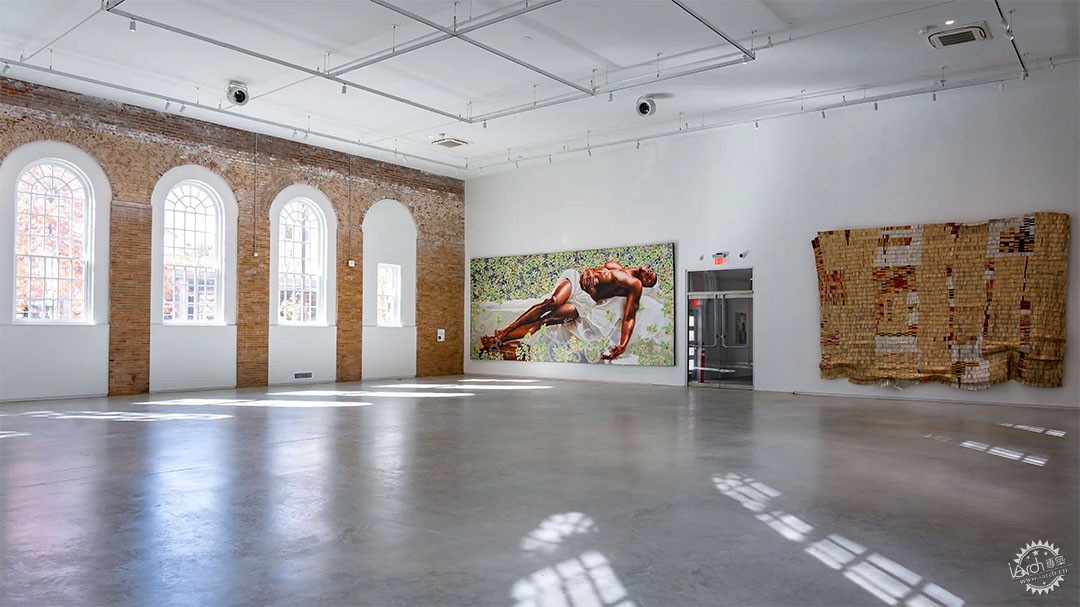
Photo © Chi Lam
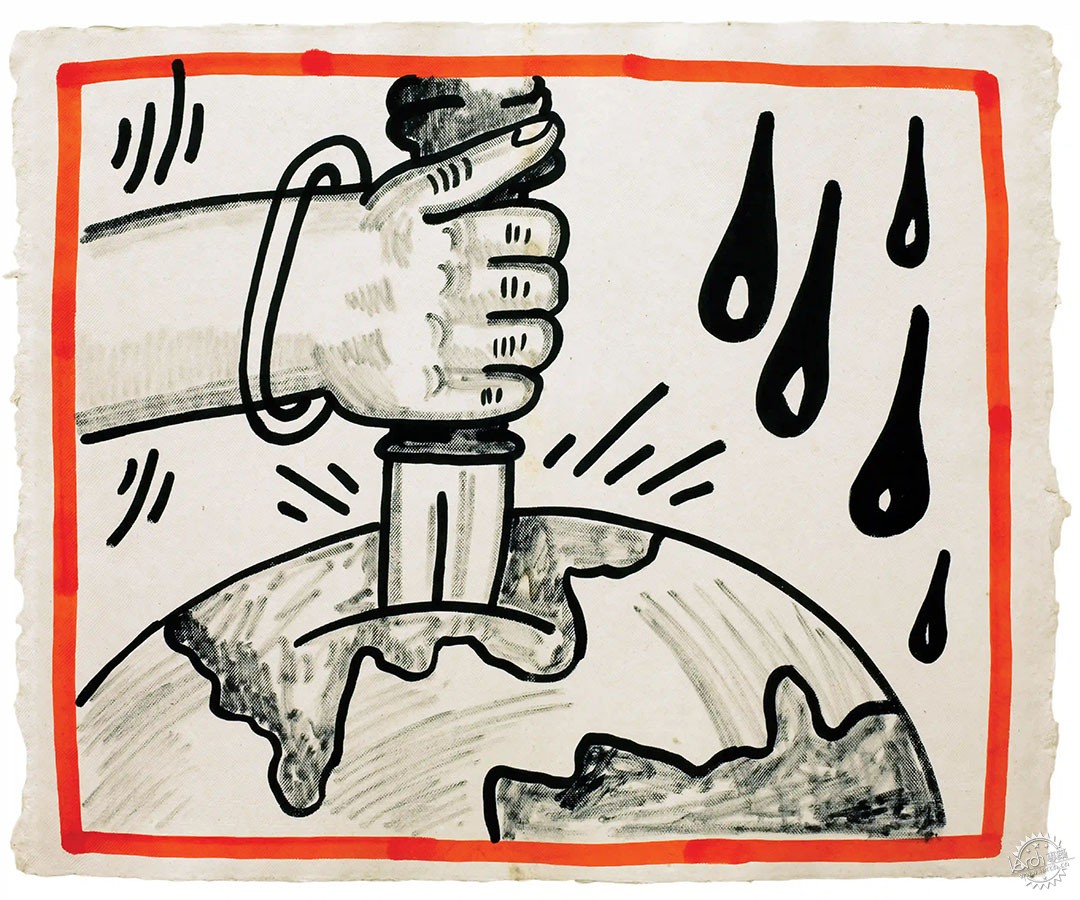
Images courtesy the Rubell Museum
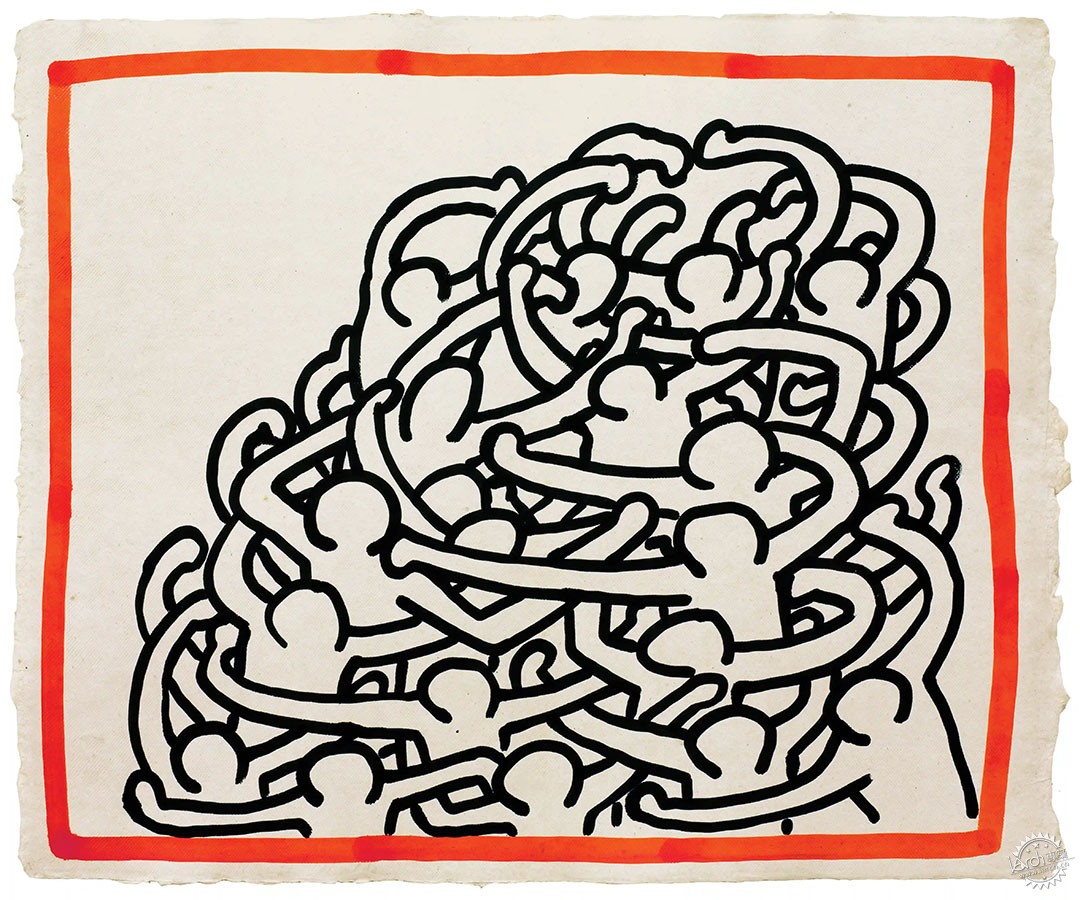
Images courtesy the Rubell Museum
紧凑、极简主义的入口门厅设有登记处、洗手间和作为书店的桌子等游客设施,人们穿过玻璃门,进入了前学校4000平方英尺的礼堂,该礼堂现在是一个通高的画廊,可以容纳超大型的艺术作品,比如Kehinde Wiley的11×25英尺的油画《Sleep》,或者El Anatsui的13×17英尺的挂毯式瓶盖和金属丝作品《 Another Man's Cloth》。
在开幕式上,Mera Rubell表示,这个礼堂是 Marvin Gaye(当时还是Rubell学校的一名学生)第一次得到认可的地方;这些才华后来成就了他的热门歌曲《What 's Going On》,鲁贝尔博物馆的首届展览就是以这首歌命名的。
正如她所说,艺术家Keith Haring在1989年开始创作一系列作品——《Against All Odds》,同时不断地聆听Gaye的音乐;这20件作品展出于其中一个展厅,地板上的音响播放着《What’s Going on》,这进一步唤起Haring的历史记忆。
The compact, minimalist entry pavilion, which has the usual visitor amenities of check-in desk, restrooms, and a table-as-bookstore, quickly gives way through paired glass doors to the former school’s 4,000-square-foot auditorium, which now serves as a sizable, double-height gallery capable of containing oversized works such as Kehinde Wiley’s 11-by-25-foot painting, Sleep, or El Anatsui’s 13-by-17-foot tapestry-like assemblage of bottle caps and wire, Another Man's Cloth. At the opening, Mera Rubell indicated that this auditorium was where Marvin Gaye (then a student at the Randall School) was first recognized as having considerable talents; those talents would later yield his hit song “What’s Going On,” from which the inaugural exhibition at the Rubell Museum draws its name. As she tells it, artist Keith Haring began a series of pieces—Untitled (Against All Odds)—in 1989 while constantly listening to Gaye’s music; those 20 pieces take up one of the galleries, with a boombox on the floor joyfully blasting out “What’s Going On” to further invoke Haring’s experience.
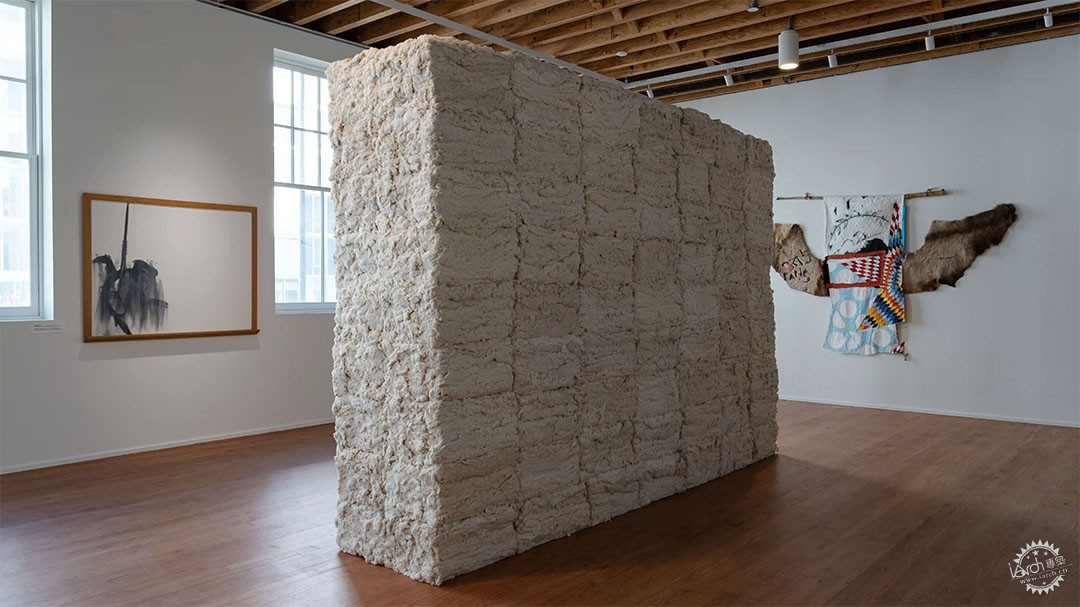
Photo © Chi Lam

Image courtesy the Rubell Museum
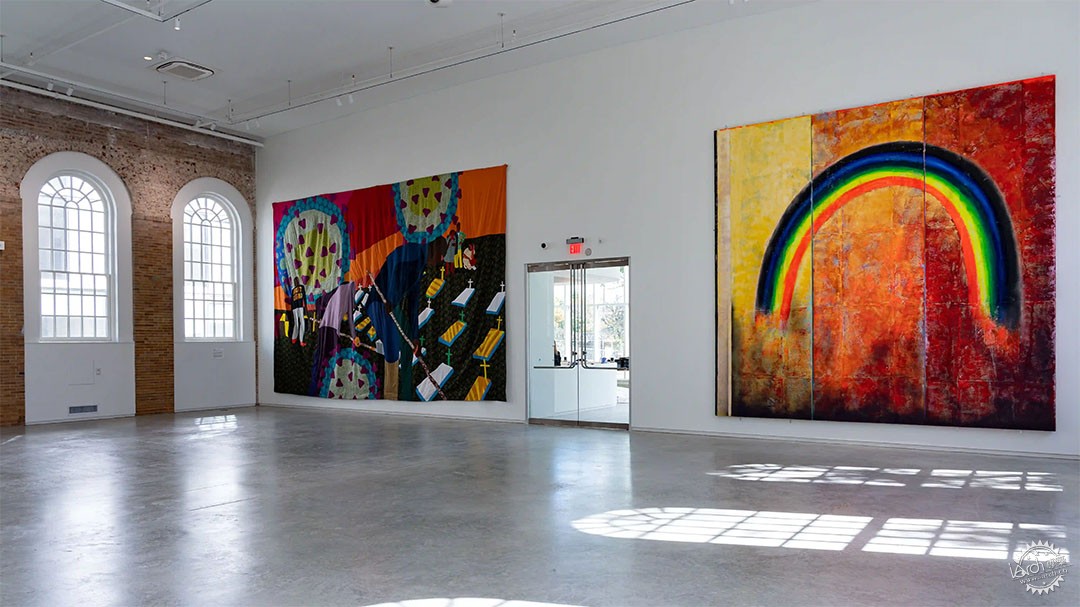
Photo © Chi Lam
在最古老的建筑群内,BBB战略性地使用了典型的画廊材料,将白色的画廊墙和角落的饰面向后拉,露出保留下来的砖砌外墙;露的天花板展示了原始的托梁搭配新的双梁,在必要时增加结构支撑力。博物馆的主要画廊有三层,上面的两层拥有原始的松木,可以保存下来,以及原始的砖拱门作为画廊之间的入口。有一层略低于地面,但可以在楼下享受充足的阳光。在首届展览中,它的特色是用破碎的柱子和其他覆盖着仿金叶的建筑细节装置——John Miller的《A Refusal to Accept Limits》。画廊将当代艺术与历史建筑并置,就像BBB在历史校舍和新住宅楼之间的质感和风格对比一样。
Within the oldest building of the complex, BBB has deployed a restrained palette of typical gallery materials strategically, pulling back the white gallery walls and finishes at corners to reveal brickwork that has been retained; uncovered ceilings reveal original joists paired with new “sister” beams bolted alongside to add support where necessary. The main galleries of the museum are on three levels, with the two upper floors boasting their original pine where it was able to be preserved as well as original brick archways serving as portals between galleries. One level is slightly below grade, but with ample daylight admitted downstairs. It features in the inaugural exhibition an installation of broken columns and other architectural details coated in imitation gold leaf—John Miller’s A Refusal to Accept Limits. The galleries seem to delight in the juxtaposition of contemporary art within historic architecture as much as BBB did with their textural and stylistic contrasts between the historic schoolhouse and the new residential building.
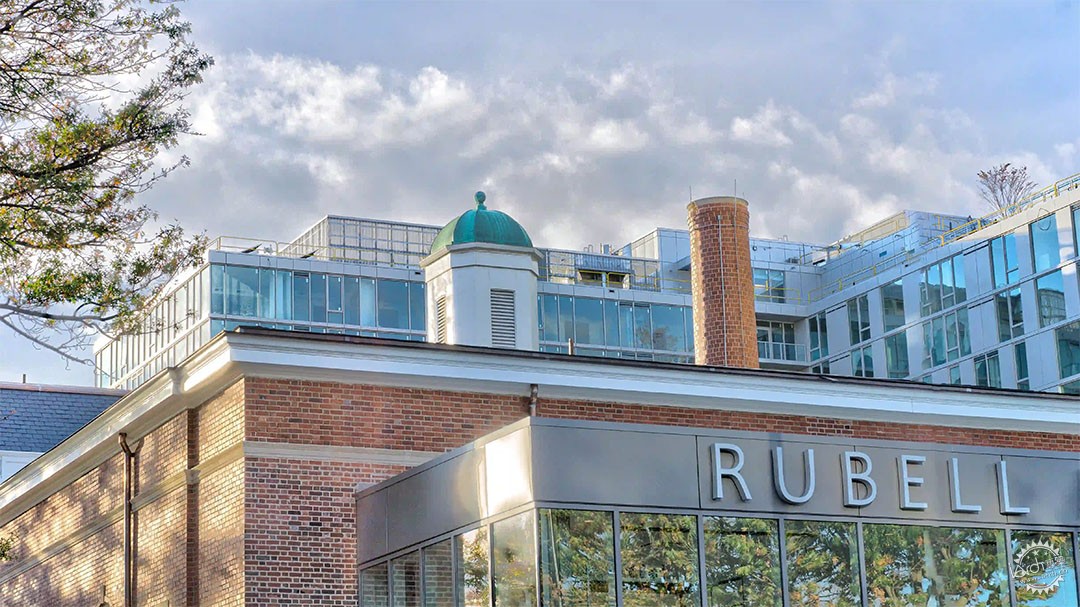
Image courtesy Beyer Blinder Belle
BBB负责人Hany Hassan表示,他对新开放的博物馆和定于2023年春天开放的住宅将振兴该地区感到激动。他在开幕式上说:“这是一个真正改变该地区的整体发展的建筑,这座建筑的消失,在它空置的很长一段时间里,在西南地区South Capitol大道和水域之间形成了一片空白地块。仅仅因为它的规模,这一建筑的落成将对社区产生非常积极的影响。”鲁贝尔博物馆对当地居民免费开放,当然是想给人留下一个好印象。
BBB principal Hany Hassan says he’s excited for the newly opened museum and the forthcoming residences (set to open in spring 2023) to revitalize the area: “It's an overall development to really transform this area,” he said at the opening. “The absence of this building, when it was vacant—for a very long time, almost a decade or more—created a void in the heart of the southwest area between South Capitol Avenue and the water. This development will have a very positive impact on the neighborhood simply because of the scale of it.” With free admission for District residents, the Rubell Museum is certainly trying to set first impressions as a good neighbor.
|
|
